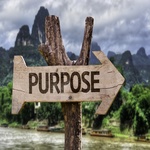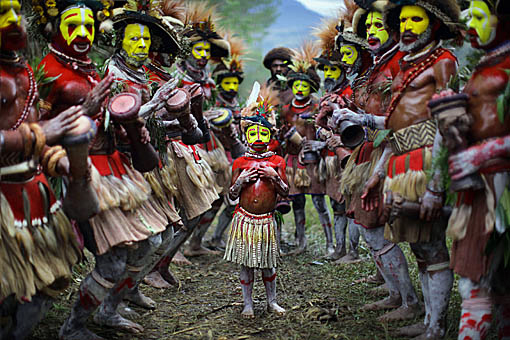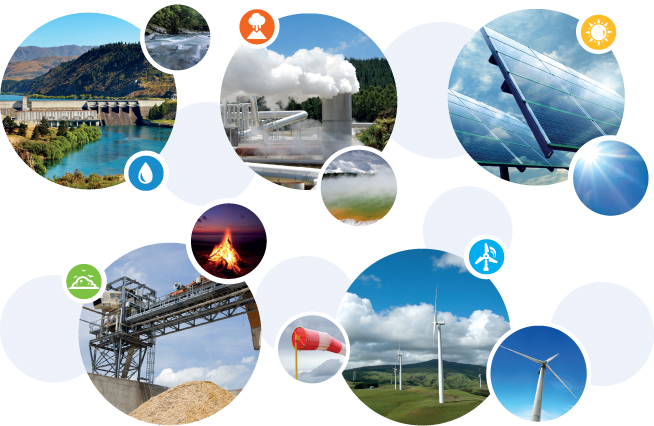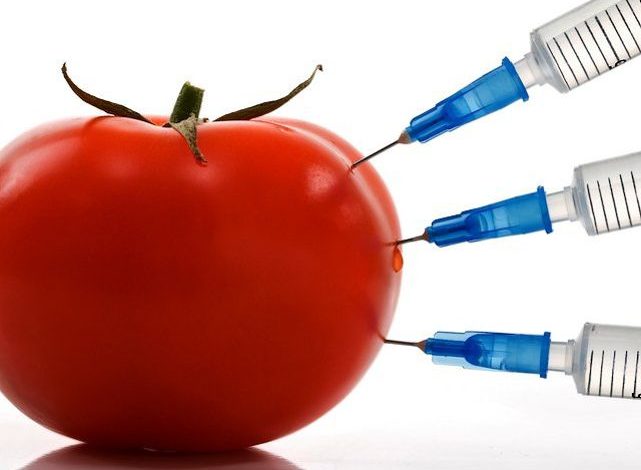Need for Connection
Hi, so today is the 3rd of April 2016, and I am thinking about need for connection today, humans’ needs to connect with each other and with their environment.
A lot of things show us that maybe we wouldn’t even have been able to become human had we not connected with another species, with dogs, with wolves. So it looks as though that’s how we managed to become shepherds and to protect our environment, and because we don’t have fur, claws, or any of the other defensive mechanisms, we employed another species that does.
It just reflects on the superiority, in some ways, of our intellect, of our opposing thumbs, the opposable nature of our hands (which gives us the ability to grasp and do other things). It also reflects in our mind: we have an additional level of flexibility that other species don’t enjoy.
Nevertheless, we have this need to connect: to connect with one another, to have some sort of supportive social circle (enter the cat), and maybe even to connect with other species.
Well as I was saying, we have this need to connect and this is inter-species as well as within the species. Social skills, in the Western world, are considered highly valuable. An individual’s ability to focus when they’re alone is less valuable, and I think that’s something that’s even reflected in our use of “the selfie” now. So here is this activity in the public eye, and it’s being known. It’s being seen. It exists. On the contrary, maybe the mastery that an artist, a sculptor, might spend working on a piece is (in a lot of society today) less valuable.
So at any rate, there seems to be a shift in the balance on these things right now, wherein the social aspects of things have taken on/have skewed the value of a lot of things. In fact, this is probably one of the ways that groups like Dash, the so-called terrorist organizations, exist.
So getting back to the need for connection between people, the military has shown that soldiers that survive stressful environments are typically those that have the strongest connections back home. So it matters how strong a person’s family bonds or other social bonds are when that person’s put in a stressful situation. The stronger the bonds are, the better the survival rate is for the person: which was the only factor they found to be really significant and so that is an interesting aspect of human psychology, of humans’ ability to be resilient in a stressful situation. A lot of it depends on how loved they feel from, how they cared for, and how responsible they are to other people (that also probably). There may have been outliers in the study: those who have strong connections with other species, cats or dogs or whatever species it is. I suppose it wouldn’t matter if they were a pigeon collector or a lizard (maybe not collector) breeder or something like that or if they were into wildlife rescue or whatever, but those bonds may also play a significant role.
In fact, the idea that we would not have evolved without dogs is fascinating to me: that indicates that our ability to connect with another species may be an integral part of who we are.
I keep referring back in my mind to certain things in this culture, in the Western culture, because I’m in the United States in 2016 and there’s a lot of religious reference (having to do with Christianity) and in Christianity, in Genesis: humans were given dominion over the animals. In which it’s unclear exactly, you know there’s no intention given. You were given dominion so that you can preserve them or so that you can consume them or just because you were smarter than they were so you had dominion. That’s all there was to it. There’s no real guidance in there. There’s nothing that says what to do.
But I think if you consider what a responsible member of a network would do with the existing network, humans only have a fairly narrow time of experience. They may be able to extrapolate which species are crucial to the survival of the entire network and which ones are not or they may not even be considering this when they do things like develop pesticides and manipulate genetic material in crop plants, for instance. My tendency of thinking in this regard is that they don’t consider these things. They don’t concern themselves with it. They don’t have enough information to make a judgment about it, probably, since that judgment’s beyond their scope. They have the ability to make the manipulations to make the money and to do things such as increase drought tolerance of plants and yield of plants and things like that. Since they have this technology, they simply feel that it’s okay to implement the technology and, if any problems that arise, they can always backtrack and correct at a later date, which may or may not be true. It’s very difficult to say. However, I would consider that if you don’t know what exactly it is that you’re looking to accomplish in the larger network and how your maneuvers are going to affect the larger network.
Because you have to remember that animals and insects and plants exchange genetic information. They are not isolated even in that regard. It is certainly known that animals and insects and plants will sometimes adopt traits that are beneficial to them through an exchange of genetic material with something in another kingdom altogether. It’s a completely different basis but nevertheless the information is available, and they can somehow learn from each other. That may create challenges when and if the genetic information that’s being used in certain GMO foods and things like this becomes part of an insect’s genetic makeup. What is going to happen to that insect? We don’t know. We’re probably going to find out real soon. So we may be behaving irresponsibly just to be doing this.
We have all this information but do we know what the consequences of our actions are? We may be able to increase the (say for instance) resistance to fungus in a particular plant. However, when that becomes translated into a bee, it may cause something to happen in the bee that we don’t know about. I think what’s happening now with the bees. They’ve determined at least one contributing factor is some pesticides, but we’re not making the pesticides anymore, so we also are going to have to be serious about what it is we want to accomplish in that way. How do we want to treat the environment that we live in, the environment that we farm in? What are we going to do about decreasing the greenhouse gases, increasing the earth’s ability to cool? How many different avenues of attack can we come up with?
Should we require all new roofs to be white? I don’t know, should we? What if we did? Would it make a difference? Would it make a difference if we lightened a lot of things? The one thing about cities is that they tend to be dark. They tend to absorb light. You know- they trap heat. I know: I live in Phoenix Arizona and it’s in the middle of the desert. It traps a lot of heat. The city is much hotter than the desert around it, definitely. At night, it radiates that heat back at night so the city doesn’t really cool off the way the desert does. So it retains the heat. What if all the roofs of all the buildings were white? What if the roofs of all the parking garages and other kinds of things, what if white simply became the color and the heat was reflected back in that way, would that help anything? How much of a help does it need to be? What if it was only a half a percent, would that make it worth doing? It might. If we half a percent around every place, it might make a big difference.
What if beef had a carbon tax, making it as expensive as it probably is? To the environment, beef consumption is very expensive, so how do you balance that out? Do you allow the market to balance it out by taxing it and having prices increase and reducing the consumption that way? Something probably should be done, because not only are the cattle producing methane directly but a lot of rainforests and other things are being cut down in order to raise cattle so there’s a kind of double negative situation with cattle.
What about new sources of energy, non-fossil fuel sources? What about promoting those things, or at least not subsidizing the fossil fuel industry? I think for the fossil fuel industry to have subsidies is kind of counterproductive, counterintuitive in some ways. You know whatever their business model is, if it requires taxpayers to pitch in, they should go back and redesign their business plan because there were record profits not too long ago and that should be continuing for them (one would think). Even though prices have been down so there’s been an over, whatever it is, they’ve been doing a lot of drilling. They’ve had a lot of refinery capacity so everyone’s contributing to the market now. Some of the countries that were in the background are now able to produce and sell. Largely Iran and their oil things are coming back online and I think there’s some compensation for whatever the Russians might be trying to do. Some of the pricing could have something to do with a backdoor agreement on that, but nevertheless, I wanted to talk about the need for connection.
All of those other things are kind of about tribalism: Russia and the US and the pride of the different countries and the different religious sects, things such as this, are a form of tribalism. This is a form of saying our tribe needs to be exclusive, and many tribes feel that they are the true tribe and that they should be dominant, so we have both situations going on. Tribes insist on being included and recognized as equals; other tribes want to dominate entire regions or the entire world.
This did help us survive in some ways. Some tribes were able to protect themselves better. There was a good reason for sticking together and protecting the tribe rather than running away if it was invaded and that sort of thing. So tribalism definitely had its place, evolutionarily, as did dogs.
There’s the ability to connect locally with a small group: they say that the human mind can sort about 150 individuals in a category, so evolutionarily, we probably had tribes and groups living together that were primarily under 150 people (for a long time at least), and when it began to grow, there became divisions within the groups. Because if you can only have 150 in a category and you have 300 altogether, you’re going to have to have at least two categories, maybe three or four, for every way of looking at it because you can’t put more than 150 in a group. So you have 150 people in the group that are loyalists, and the other 150 must be questionable, something like that.
So the need to identify as a member of the tribe was originally all that was required. The idea of being in a tribe and having sub-categories and things like this is something that came up later. Although if you knew of other tribes, such as other species like our human tribe versus dog tribe or wolf tribe (whatever happens to be), you would be aware of that already, but you probably can only keep track of 150 different species. So if you start to run into a place where there are 3 or 400 different species, you’d have to create broad categories for things and just lump them together (that sort of thing), at any rate.
The idea of connection is very important. It’s through connections with others that we access our connection with the universal self. So part of the human condition is the desire to connect on a larger, broader scale than even the individual family. The idea to reach out beyond, to be even more inclusive, and to have better connections, we see this in teenagers and in people in their 20s. How they’re making extra family connections, they’re making friendships and partnerships, and other types of relationships. These parts are all part of our growth as humans, and they continue to be important: so isolated people probably are less healthy than those that are well connected also. Obviously people’s life spans are enhanced by strong connections.
So this is all the way it works on the outside. On the inside, as we’re living our lives in isolation. We tend to think in loops, in circular types of thinking. We have the same kinds of ideas. They may be stronger or weaker at different times, but it’s not until we start to connect or increase our connections and make new connections that the ideas and thoughts that our mind is revolving around can shift and be enhanced through that shifting. I suppose they could also be distracted or something like that, but you wouldn’t necessarily want to make strong connections with those that are not enhancing your thinking.
So, in a way, it’s like if you’re taking a vitamin or eating nutritious food you should make friends with people who have healthy, similar ideas. That kind of connection would be good, even just the kind that says “Hey, I support you, I’m here, I think you’re doing good.” Just some sort of encouragement is also helpful from the outside.
Now this is not the same as the self-affirming individual, but you can still be a self-affirming individual and have connections that are also affirming, self-validating even. A self-validated individual be validated on the outside as well? It’s certainly feasible. One self is very similar to another, alright.
The Eastern world has a stronger idea of the group or the society and this group’s needs, and the societies have been precedent over the individual. They have stronger tendencies in those ideas and those beliefs than in the West. In the West, the individual and the individual’s accomplishments carry a lot more weight. The West has been able to accomplish certain things with this philosophical approach that the East has not. However, it can easily be pointed out that the East has accomplished certain things that escape the West. The West is unable to really grasp what’s going on. The Western medicine has no idea why acupuncture works or what some of the herbal remedies are that the East uses with great success.
But we’ll go on to what the subtleties are and why the West has such a challenge with certain subtleties and that they simply are unable to work with information that requires considering a certain amount of subtleties. It’s a shortcoming, however, they are certainly able to accomplish an awful lot with the approach that they do have and so there are some advantages to each. However, it’s time now that we should consider the Eastern and the Western approaches together and develop a more functional idea of what is happening in the world.
I recently listened to a talk about social justice. Social justice is very important for the same kinds of reasons that when we have a breakdown internally. When we reject part of ourselves, we kind of set our inner world up so that part of us is looked down on and shunned and made small and abused and ignored. Many people have this if they feel that, for instance, their sexual notions are inappropriate. I can’t say that they’re not, but what I can say is that the idea of taking the internal world and dividing it against itself reduces one’s ability to function at full energy, it’s just apparent.
The same thing happens in the outside world. If there’s part of us that we’re neglecting and ignoring and allowing to be weak, say financially, emotionally, and morally, if we just accept and allow this to continue without going in there and working with it and at least acknowledging it, bringing it, and considering how to work with it and what to do about it, if we’re just allowing it to be like a wound festering, then we’re going to have to fight that illness and continue on with what we’re trying to do.
So if what we’re trying to do is to find a way to facilitate a verdant, healthy, just planet, people’s as well as the rest of the living network on the earth. We are going have to accept who we are to ourselves and to each other and we’re going to have to heal.











